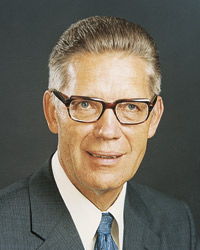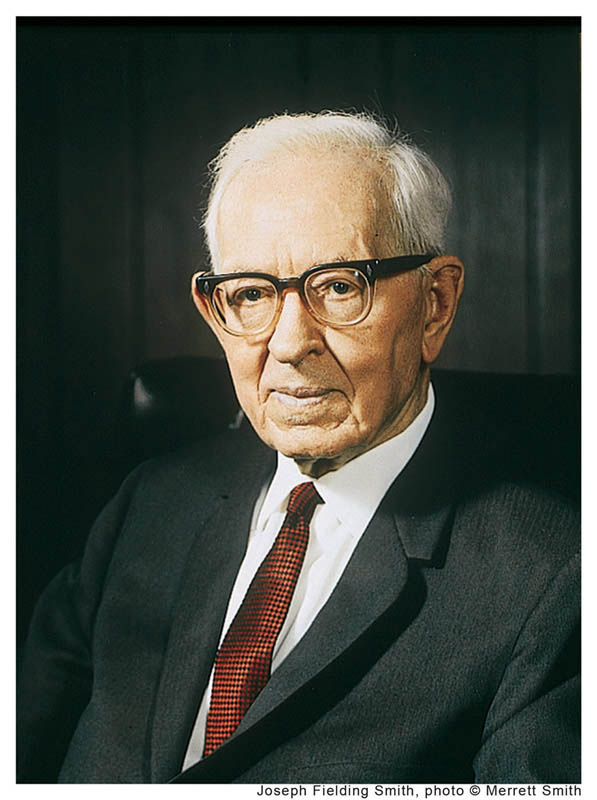Worship
SEARCH BY TITLE
 Our Relationship With The Lord
Our Relationship With The Lord
Let us set forth those doctrines and concepts that a gracious God has given to us in this day and which must be understood in order to gain eternal life. They are: 1. We worship the Father and him only and no one else. We do not worship the Son, and we do not worship the Holy Ghost. I know perfectly well what the scriptures say about worshipping Christ and Jehovah, but they are speaking in an entirely different sense—the sense of standing in awe and being reverentially grateful to him who has redeemed us. Worship in the true and saving sense is reserved for God the first, the Creator. Our revelations say that the Father “is infinite and eternal,” that he created “man, male and female,” And gave unto them commandments that they should love and serve him, the only living and true God, and that he should be the only being whom they should worship. Jesus said: True worshippers shall [note that this is mandatory] worship the Father in spirit and in truth; for the Father seeketh such to worship him. For unto such hath God promised his Spirit. And they who worship him, must worship in spirit and in truth. There is no other way, no other approved system of worship. 2. We love and serve both the Father and the Son. In the full, final, and ultimate sense of the word the divine decree is: Thou shalt love the Lord thy God with all thy heart, with all thy might, mind, and strength; and in the name of Jesus Christ thou shalt serve him. And Jesus also said: If ye love me, keep my commandments. These, then, are the commandments of commandments. They tie the Father and the Son together, as one, so that both receive our love and service. 3. Christ himself loves, serves, and worships the Father. Though Christ is God, yet there is a Deity above him, a Deity whom he worships. That God is the Father. To Mary Magdalene, the first mortal to see a resurrected person, Jesus said: I ascend unto my Father, and your Father; and to my God, and your God. All of us, Christ included, are the spirit children of the Father; all of us, Christ included, seek to become like the Father. In this sense the Firstborn, our Elder Brother, goes forward as we do.
 The Reins of Responsibility and Leadership
The Reins of Responsibility and Leadership
The God we worship is a glorified Being in whom all power and perfection dwell, and he has created man in his own image and likeness, with those characteristics and attributes which he himself possesses. And so our belief in the dignity and destiny of man is an essential part both of our theology and of our way of life. It is the very basis of our Lord’s teaching that “the first and great commandment” is: “Thou shalt love the Lord thy God with all thy heart, and with all thy soul, and with all thy mind”; and that the second great commandment is: “Thou shalt love thy neighbour as thyself.” Love of God and fellowmen Because God is our Father, we have a natural desire to love and serve him and to be worthy members of his family. We feel an obligation to do what he would have us do, to keep his commandments and live in harmony with the standards of his gospel — all of which are essential parts of true worship. And because all men are our brothers, we have a desire to love and bless and fellowship them — and this too we accept as an essential part of true worship. Thus everything we do in the Church centers around the divine law that we are to love and worship God and serve our fellowmen. It is no wonder, then, that as a church and as a people we have deep and abiding concern for the welfare of all our Father’s children. We seek their temporal and spiritual well-being along with our own. We pray for them as we do for ourselves, and we try to live so that they, seeing our good works, may be led to glorify our Father who is in heaven. Engaged in a good cause As a church, we are pleased to commend and encourage every civic and cultural project or undertaking that is edifying and wholesome and that is for the blessing and betterment of mankind.
